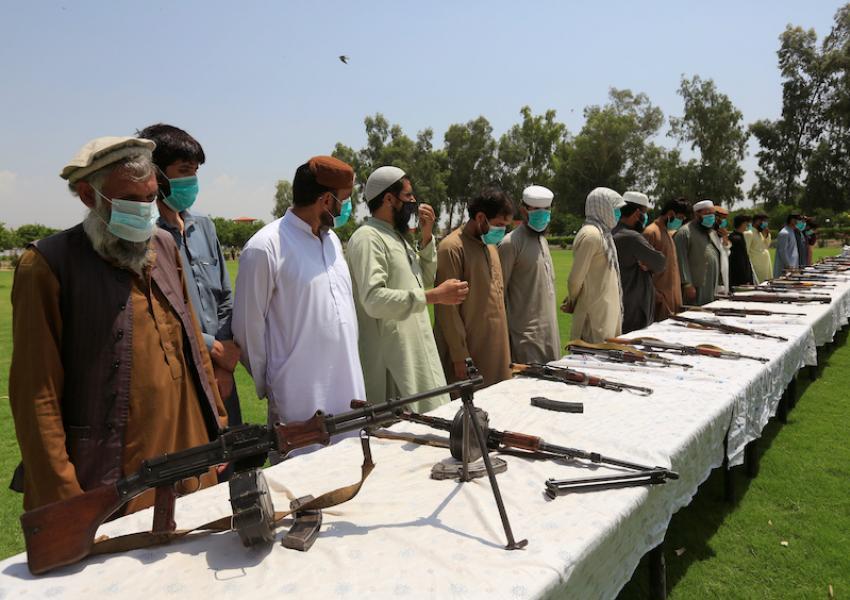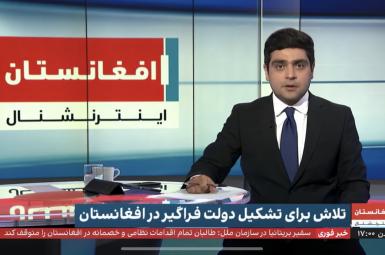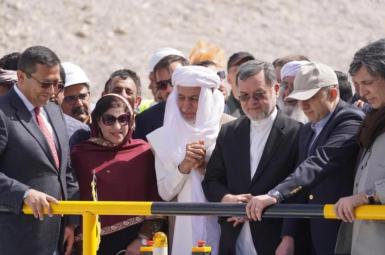
Two Decades of Mysterious Assassinations in Afghanistan
After the Bonn Conference in 2001, which established the transitional government led by Hamid Karzai, the trend of assassinating influential figures in Afghanistan began. The first victim of these killings was Haji Abdul Qadir, the Vice President of Afghanistan and Minister of Public Affairs. In addition to being a key figure in the Bonn Conference, he was also a leading commander in the fight against the Taliban.
Over the 19 years following the Bonn Conference, the scope of these assassinations became wider and more ambiguous, leading to the killing of dozens of Afghan politicians and officials. Burhanuddin Rabbani, head of Afghanistan's High Peace Council and one of Afghanistan's most prominent jihadist figures, was also assassinated in 2011.
Many of these assassinations were mysterious and carried out in a way that no individual or group claimed responsibility for them. After each incident, the government promises to identify the perpetrators of these killings but has so far failed to keep its promises. Given the government's failure to prevent assassinations, relatives of some of the victims blamed the assassinations on the government.
The mysterious killings continue to target not only influential people but also low-ranking government officials and even religious figures and intellectuals.
More than any other group, Afghanistan's judiciary has its members targeted and killed. In the past few years, dozens of judges, prosecutors, and staff of these institutions have lost their lives. In most of these cases, the Taliban has claimed responsibility.
Last month, four prosecutors responsible for the release of Taliban prisoners were assassinated by unknown individuals on their way to their offices. The Taliban denied any involvement in the incident. Zalmay Khalilzad, the US Special Representative for Afghanistan Reconciliation, condemned the attack in a tweet, saying: “This attack was carried out by the enemies of peace.”
The Assassination of Secular Figures and Religious Scholars
For the Taliban, anyone who works or cooperates with the Afghan government is a legitimate target. The line “Talib! Get Rid of the Secular”, taken from a Taliban’s song, reveals that the group believes the government employees are secular and must either surrender to the Taliban or be killed. The song is accompanied by video footage of the Taliban targeting government troops with snipers. On their website, they have published a list of commanders killed in a year, as well as a list of those who surrendered to the Taliban.
In addition, there are other targeted and mysterious murders for which no one accepts responsibility. The victims of these attacks are from all walks of life in Afghanistan, from politicians to religious figures and businessmen and even students.
But the recent assassinations of religious figures in Muslim holy places such as mosques have taken everyone by surprise.
Ayaz Niazi, the imam of Wazir Akbar Khan Mosque in the heart of Kabul, a few hundred meters from the Presidential Palace, was the most prominent cleric to be killed in a suicide attack on a mosque last month. Even the Taliban condemned his murder and the perpetrators have not yet been identified. He always criticized ISIS attacks and at the same time criticized the presence and attacks of foreign troops against civilians. In his last sermon, Niazi denounced the Iranian government's treatment of Afghan refugees who were shot dead by security forces and called for the death of several people and invoked international human rights organizations to file a lawsuit.
A few days after Niazi was killed, another imam was targeted in a mosque. Molawi Azizullah Mofleh, the imam of the Shirshah Suri Grand Mosque in Kabul, and Molawi Ainullah Khaliani were killed. These two religious scholars were also known as moderate religious figures and supporters of the peace process in Afghanistan.
The Taliban condemned the attacks and denied any involvement in them. However, Amrullah Saleh, the first vice president of Afghanistan wrote that “the Taliban cannot acquit themselves of this crime and assassination by writing two sentences. The Taliban are involved in the ugly blasts in the mosques, the massacre of religious scholars who studied anywhere but Pakistan, and the suicide bombings against ethnic, political, and scientific figures in the country.”
The Taliban have accused some political circles in Kabul of involvement in the attacks by playing a video where two masked men confess to targeted killings. In this tape, Rahmatullah Nabil, the former head of Afghanistan's intelligence, is mentioned; Rahmatullah Nabil called this claim false and rejected it.
Citing the video, the Taliban claimed that senior officials, in cooperation with the government's intelligence service, were involved in the attacks and that they were responsible for bombings of religious centers and the assassination of religious scholars and peace activists. In the video, the Taliban claim that a plot to assassinate Zalmai Khalilzad was also planned. The United States has stated that it is seriously considering the Taliban claim.
Different sources blame these assassinations on political rivalries, personal animosities, smuggling deals, and religious disputes. Ahmad Zia Rafat, a university professor, says: "It cannot be said that all these murders are done by a particular organization or group. Different countries are involved here and any of them can be responsible for the killings that are taking place in Afghanistan. It may be preferable for one group to kill the military, for another group perhaps to kill religious figures, even for another group to kill technocrats and intellectuals. All of this has happened and has different origins.”
“We are witnessing the expansion of religious terrorism,” Rafat added; “the problem is that those who stand in the way of this terrorism could be potential targets of Jihad, even if they are religious or moderate mullahs or schools. For extremists, anyone could be a target. In addition, religious terrorists who fight against the government can target anyone who supports the government, be it liberal or religious.”
Although the Afghan government has always promised to pursue such attacks and identify the perpetrators, it has not yet been able to stop the killings. These killings have had profound effects that, on the one hand, have created an atmosphere of fear and terror in the minds of the people, and on the other hand, have widened the gap between the government and the people.
But Rafat says: “In fact, due to its weakness and in some cases its incapacity, the government cannot find all the sources of these assassinations. In some cases, even if the government is able to find out which country was the source of some of the attacks, its weaknesses render it impossible to expose the countries involved in the killings.”








